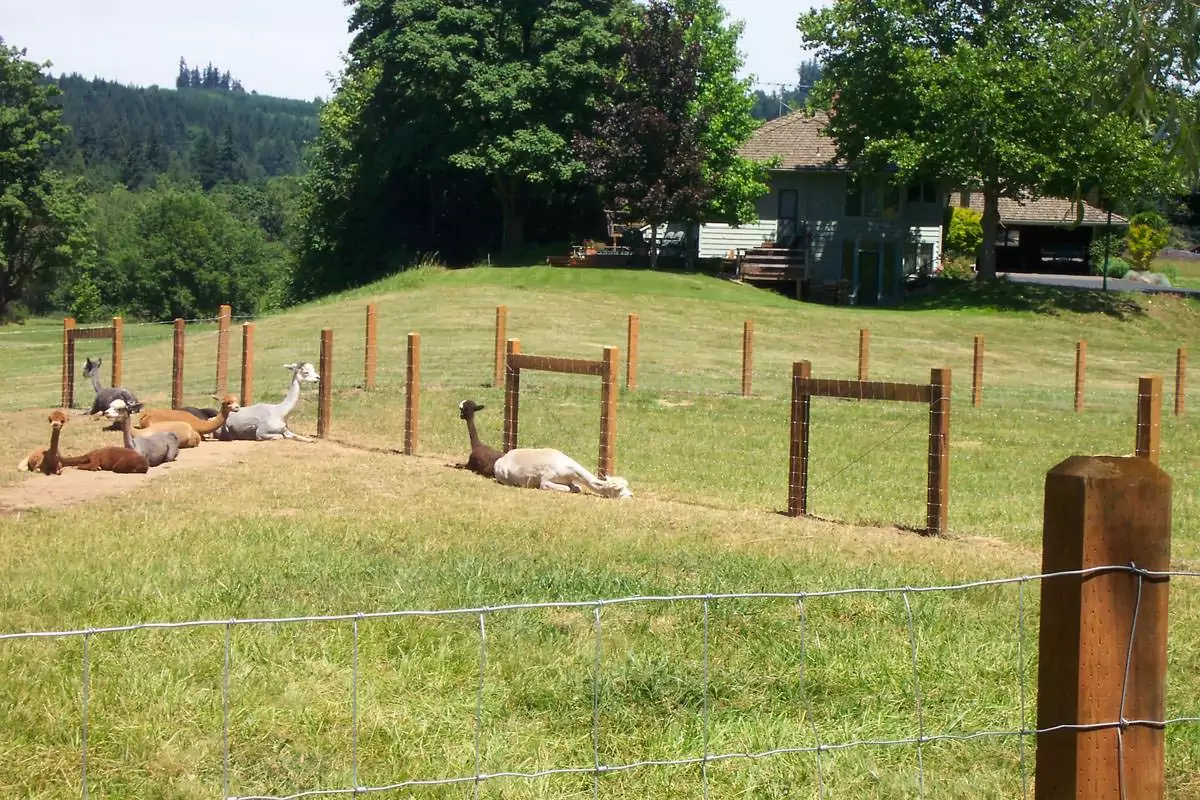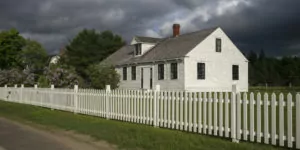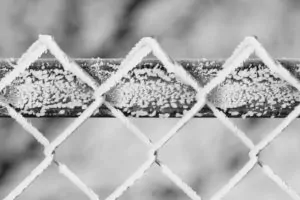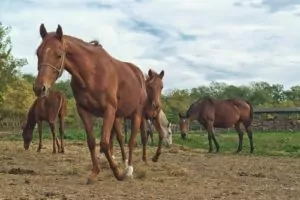Whether you own and operate a 40-acre farm, or have a beautiful vegetable garden, a few chickens, and maybe even a pig in your backyard, the right fence makes all the difference. In each case, however, very different fences are needed. So the best way to fence a farm depends on a few factors.
The type of farm, the intended use of the fencing, the available budget, and existing environmental conditions all play a role in choosing the best method. For example, some farms may require heavy-duty fencing to contain large livestock, while others may only need a simple boundary fence.
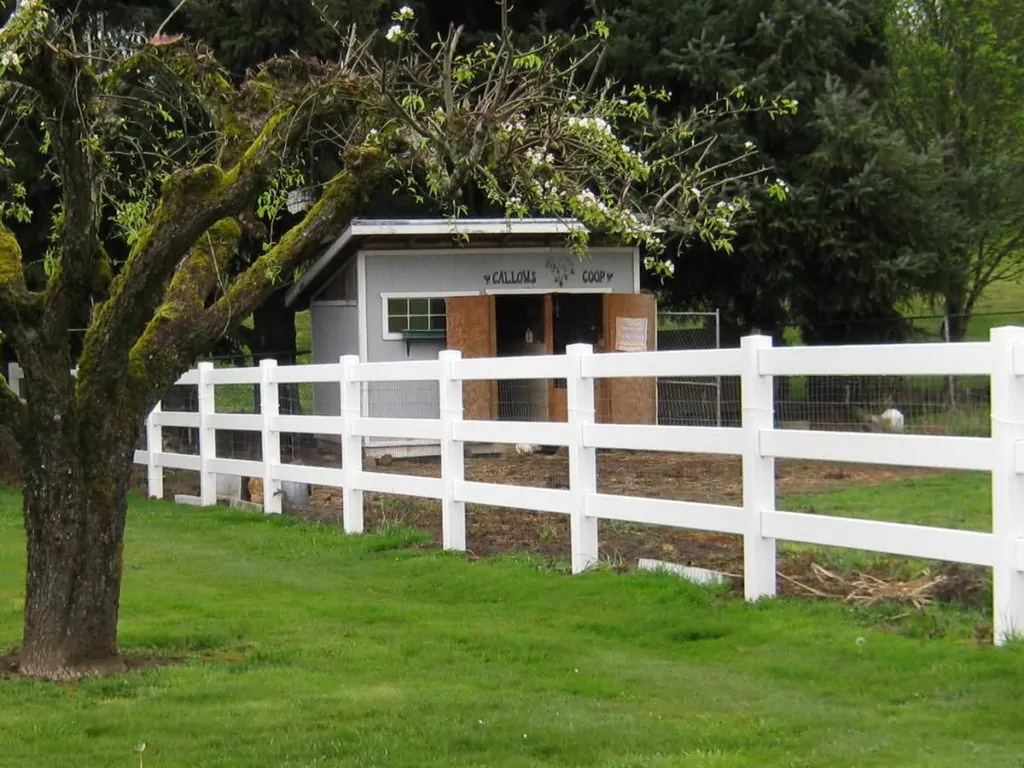
Best Way to Fence a Farm
Here are some common types of farm fencing and their uses. From the heavy-duty to the aesthetic, each fence is ideal for certain situations and can depend on the size of animals you’re hoping to contain.
- Post and Rail
- Woven Wire
- Electric
- Barbed Wire
- High-Tensile Wire
- Deer
- Wooden
- Chain Link
Post and Rail Fencing
This is a reliable and practical option for anyone looking to mark their property boundaries or contain larger animals like horses and cattle. Unlike other types of fencing, post and rail fencing are constructed using vertical posts with two or three horizontal rails and no fence boards.
This design allows for a clear boundary without impeding views while still keeping animals out of harm’s way. Its simplicity also makes it easy to install and maintain, making it a popular option for both property owners and ranchers alike.
Woven Wire Fencing
Woven wire fencing is a popular choice for farmers looking to keep their animals contained and secure. Formed by vertical and horizontal wires, the grids can come in a variety of sizes depending on the animal’s needs. Woven wire fencing is a versatile option that can accommodate a wide variety of farm animals.
Also known as welded wire fencing provides a sturdy, reliable barrier that keeps animals from straying beyond their designated zones (while keeping other critters out if necessary). The horizontal and vertical wires can come in different-sized gauge wires to match the durability you need. If you’re on the hunt for a durable, dependable perimeter for your farm, woven wire mesh fencing is definitely worth considering.
Electric Fencing
Electric fencing can be used on its own or in conjunction with other types, making it perfect for rotational grazing. Electric fencing operates by using minimal electric shocks as a deterrent to keep animals from crossing, while still allowing them to move around freely.
This option obviously needs a power source of some kind, which makes installation more involved than the other types of fencing on the list. But even large animals and potential predators will get the hint pretty fast to steer clear with an electric fence.
Barbed Wire Fencing
Barbed wire fencing is widely used in farms because of its effectiveness in securing and marking boundaries. This simple yet innovative fence consists of strong wires equipped with sharp barbs spread across their lengths, aimed at deterring both animals and humans alike.
It’s also relatively affordable compared to other fence types, which makes it an economical and cost-effective option for covering a vast land area. But while barbed wire fencing may be an ideal choice on paper, you may need to check codes/regulations in your area to make sure it can be used.
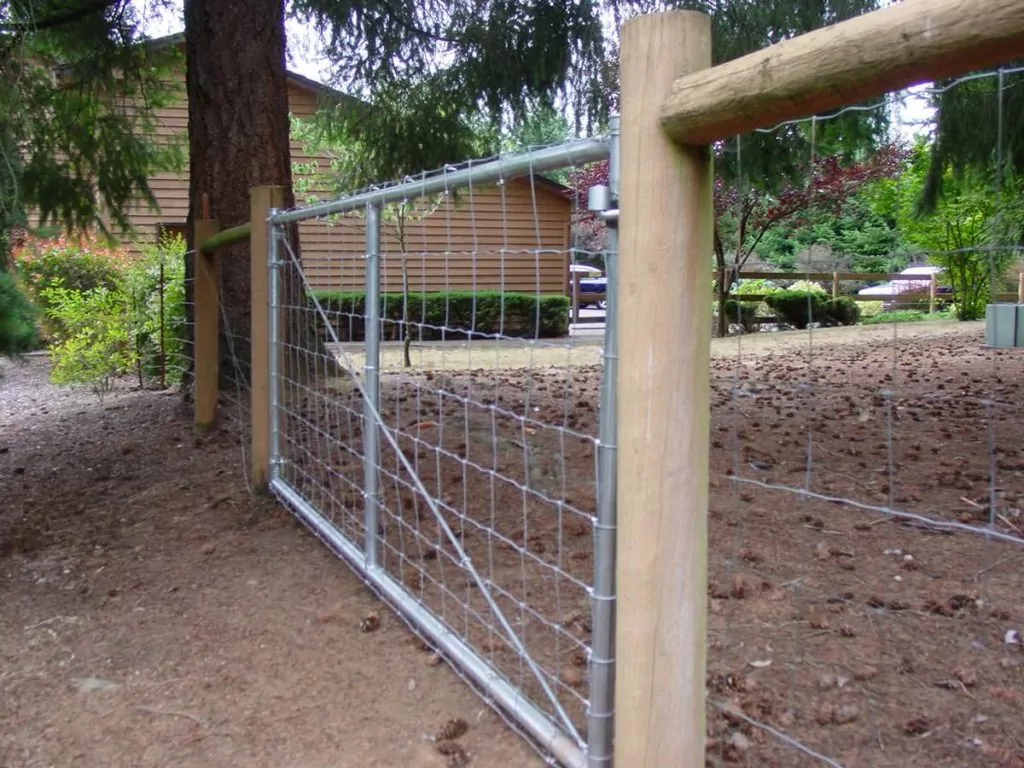
High-Tensile Wire Fencing
Made of smooth wire, high-tensile fencing typically consists of four to 10 strands, depending on the type of animals you’re trying to keep in or out. It can be used as a replacement for barbed wire, it’s generally more economical, and it tends to last longer too. One of the biggest benefits of high-tensile fencing is that it doesn’t lose elasticity, although you may need to tighten it on occasion.
Plus, it’s much less likely to harm your animals if they happen to brush up against it. Best of all, high-tensile fences can be either electric or non-electric, so you can choose the type that works best for your situation. You won’t need as many fence posts for installation, either, which can save you money.
Deer Fencing
If you’re tired of deer munching on your garden or bringing harmful ticks to your livestock? Polypropylene mesh may be the solution you need. This plastic fencing attaches to vertical posts and forms a barrier, similar to metal wire. Polypropylene mesh is the most affordable option, however, it may not look as attractive as other fencing options.
It’s important to keep in mind that deer are strong animals and can rupture plastic fencing that isn’t durable enough. For that reason, it’s recommended to select a grade that has a breaking load of at least 800 pounds.
Wood Fencing
If you’re looking for a boundary that is both rustic and aesthetically pleasing, wooden fencing is a great option. Not only does it look great around areas like the farmhouse or garden, but there are also several different styles to choose from. For smaller gardens, you can choose a picket fence, while split rail, round rail, and crossbuck fencing are great for wider open spaces.
And, if you want the look of wood but with more durability, vinyl products can replicate the look of wood and last longer, too. Steel posts will last longer than even treated wood posts, too. So, whether you’re looking to simply mark off areas or create a charming boundary, wooden fencing is a great choice for any farm and can fit almost any budget.
Chain Link Fencing
Chain link fencing is a practical solution for farms looking to enhance security. It’s durable and strong, adding an extra layer of protection to keep your property safe. One of the benefits of chain link fencing is its ability to allow for good visibility both inside and outside of the enclosed area, making it easy to keep an eye on your livestock or crops.
Chain link fencing is relatively easy and quick to install and requires minimal maintenance over time. However, some farmers may find that chain link fencing isn’t the most attractive option. Luckily, it is possible to wrap chain link fences in colorful plastic to add a touch of personality and improve their overall appearance.
Best Way to Fence a Farm: Final Thoughts
Ensuring that your farm is properly fenced is essential for maintaining the safety and security of your animals. However, with so many different fencing options available, choosing the right one can be a daunting task. Factors such as the types of animals you have, your security needs, and the overall look of your farm all come into play when deciding on the best fencing solution.
Seeking the advice of agricultural experts, fencing contractors like Pacific Fence and Wire, or local agricultural extension offices can provide valuable guidance in making the right decision. Don’t make a hasty decision on something as crucial as your farm’s fencing – take the time to do your research and choose the option that works best for you.
When you’ve settled on the type of fence you want for your farm, get in touch with Pacific Fence and Wire. We have more than a century of experience installing farm fences all over the Portland Metro area and beyond. We also have a wide variety of fencing materials, parts, and accessories if you’re looking to mend your existing fences.


